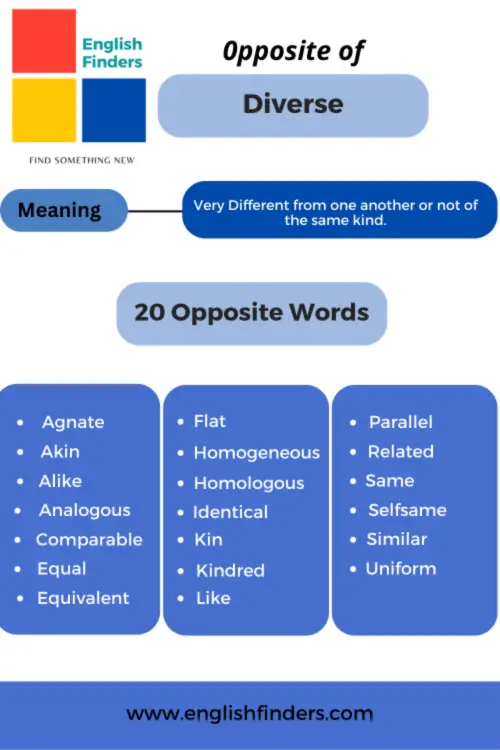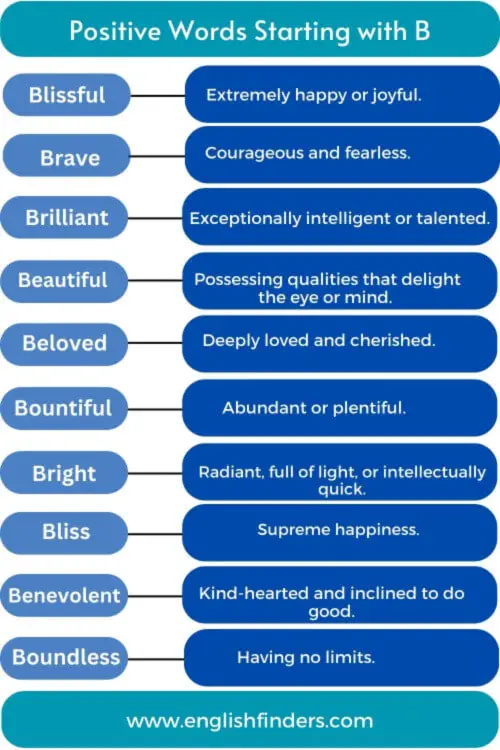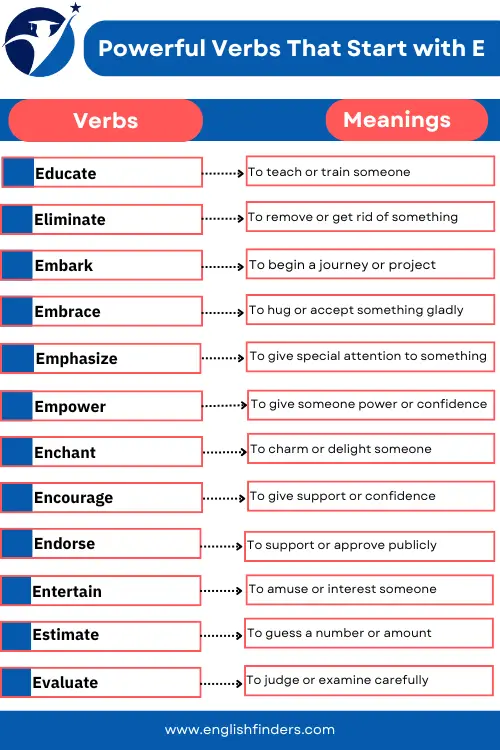Last updated on April 25th, 2025 at 04:08 pm
Are you looking to grow your English vocabulary and make your sentences more exciting? You’re in the right place! In this lesson, we’re going to explore 50 verbs that start with D, complete with simple meanings and clear example sentences to help you understand how to use them.
Verbs are action words—they tell us what someone is doing. And when you focus on verbs that begin with one letter, like the letter “D”, it becomes easier to remember and practice them. Plus, you’ll be surprised how often these verbs pop up in everyday conversations, stories, and schoolwork!
Why Learn Verbs That Start with D?
Quick Navigation
Learning verbs that start with D helps you build your vocabulary in a fun and organized way. Instead of trying to learn hundreds of random words at once, it’s easier (and way less stressful) to study them one letter at a time. This method also helps your brain remember them better.
Also, many “D” verbs are used in daily life. Words like dance, debate, decide, and drive are all around you—when you’re talking with friends, writing an assignment, or watching a show. So, the more you practice them, the more confident you’ll feel when speaking or writing in English.
Here’s another cool reason: when you know a variety of verbs, you can express yourself more clearly. Instead of always saying “do” or “make,” you’ll have more exciting choices like “design,” “deliver,” or “demonstrate.” In short, learning these verbs can help you sound more natural, be more creative, and enjoy the learning process a lot more!
50 Powerful Verbs That Start with D
Below is a helpful list of verbs that start with D, along with their meanings and example sentences to show how each word is used in everyday English.
| Verb | Meaning | Example |
|---|---|---|
| Dance | To move rhythmically to music | She loves to dance at parties. |
| Dare | To have the courage to do something | I didn’t dare to speak in front of the class. |
| Dash | To run quickly | He is dashing to catch the bus. |
| Dazzle | To amaze or impress someone | The magician dazzled the crowd with his tricks. |
| Deal | To handle or manage something | I can deal with the problem myself. |
| Debate | To argue about a topic in a formal way | They have debated the topic of climate change in class. |
| Decide | To make a choice or judgment | She decided to study English instead of French. |
| Declare | To say something officially or firmly | The teacher will declare the results of the test. |
| Decorate | To make something look nice or pretty | We’re decorating the classroom for the party. |
| Decrease | To become or make something smaller | The prices decreased after the sale. |
| Dedicate | To give time or effort to something | He dedicated his weekend to studying. |
| Defeat | To win against someone or something | Our team defeated the champions. |
| Defend | To protect someone or something | The lawyer defended her client well. |
| Define | To explain the meaning of a word or idea | Can you define what “kindness” means? |
| Delay | To make something happen later than planned | The flight was delayed due to bad weather. |
| Delete | To remove or erase something | I accidentally deleted my homework file. |
| Deliver | To bring or transport something | Your product will be delivered within 30 minutes. |
| Demand | To strongly ask for something | The workers are demanding better pay. |
| Deny | To say something is not true | He denied breaking the window. |
| Depend | To rely on or trust someone | You can depend on me. |
| Describe | To tell about something in detail | Can you describe the man you saw? |
| Design | To plan how something will look | She designed a beautiful poster. |
| Desire | To want something strongly | He desires to become a great artist. |
| Destroy | To ruin or damage completely | The fire destroyed the old house. |
| Detect | To discover or notice something | The doctor has detected an issue early. |
| Determine | To decide something after thinking | She determined to finish the project today. |
| Develop | To grow or improve over time | Aziz has developed new coding skills. |
| Devote | To give time or energy to something | She devotes her weekends to reading. |
| Diagnose | To find out what illness someone has | The doctor diagnosed him with the flu. |
| Differ | To be unlike or not the same | Their ideas differ from ours. |
| Dig | To break up and move earth | We dug a hole to plant the tree. |
| Diminish | To become smaller or less | His fear slowly diminished over time. |
| Direct | To guide or show the way | Can you direct me to the library? |
| Disagree | To have a different opinion | I disagree with your answer. |
| Disappear | To go out of sight | The cat disappeared into the bushes. |
| Discover | To find something for the first time | She discovered a hidden path. |
| Discuss | To talk about something seriously | Let’s discuss the homework assignment. |
| Dislike | To not like something | He dislikes eating broccoli. |
| Dismiss | To send someone away or reject an idea | The teacher dismissed the class early. |
| Display | To show something openly | They displayed their art at the fair. |
| Disrupt | To interrupt or stop something | Loud noises disrupted the class. |
| Dissolve | To mix into a liquid until it disappears | Sugar dissolves in tea. |
| Disturb | To bother or interrupt someone | Don’t disturb me while I’m studying. |
| Dive | To jump into water headfirst | She dove into the pool. |
| Divide | To split into parts | Divide the candy equally. |
| Do | To perform or carry out an action | I will do my homework now. |
| Drag | To pull something along the ground | He dragged his suitcase to the station. |
| Draw | To make a picture with a pen or pencil | She drew a picture of her house. |
| Dream | To imagine or see things while sleeping | I dream to be an honest person. |
| Drive | To control and move a vehicle | I dream of being an honest person. |
| Drop | To let something fall | Don’t drop your phone! |
Final Words
And there you have it—50 useful verbs that start with D to boost your vocabulary and help you speak and write English with more confidence!
Remember, learning new words doesn’t have to be boring or hard. When you group words by their starting letter, like we did with the letter D, it becomes much easier to remember them and use them in your everyday conversations. Plus, the more you practice, the faster you’ll improve.
Try using a few of these verbs in your next homework assignment, journal entry, or even when you’re talking to friends. You’ll be amazed at how quickly your English starts to sound more natural and expressive.
📝 Worksheet: Practice with Verbs That Start with D
🔹 Part 1: Fill in the Blanks
Use the correct verb from the box to complete each sentence. Be sure to change the verb form if needed.
Word Bank: dance, decide, drive, deliver, describe, decorate, deny, draw, drop, discuss
- I will __________ the invitation to your house this evening.
- Can you __________ the man you saw near the station?
- We need to __________ the plans for our group project today.
- My mom helped me __________ the living room for the party.
- He didn’t __________ breaking the window, even though he was there.
- I can’t __________ which book to choose for my report.
- Please don’t __________ your phone again—it might break!
- My cousin can __________ very well. She won an art contest.
- They like to __________ at every school event.
- I will learn how to __________ when I turn 16.
🔹 Part 2: Match the Verb to Its Meaning
Draw a line to match each verb with its correct meaning.
| Verb | Meaning |
|---|---|
| Dash | A. To stop something from showing |
| Diminish | B. To shine brightly or impress |
| Dazzle | C. To run quickly |
| Disagree | D. To have a different opinion |
| Delete | E. To become smaller or less |
🔹 Part 3: Sentence Creation
Write your own sentence using each of the following verbs:
- Defend – __________________________________________________________
- Devote – __________________________________________________________
- Detect – __________________________________________________________
- Destroy – __________________________________________________________
- Dream – __________________________________________________________
🔹 Part 4: Choose the Right Verb
Circle the verb that best completes the sentence.
- I need to (dive / dash / decorate) into the pool before the race begins.
- My teacher asked me to (define / delete / deny) the meaning of “respect.”
- The players will (defeat / defend / describe) their title in the finals.
- We (drew / danced / disappeared) when the lights turned off suddenly.
- He (diagnosed / depended / debated) the symptoms and found the illness.
🔹 Part 5: Fun Challenge
Write a short story (4–5 sentences) using at least five different verbs that start with D. Underline the verbs in your story.

Azizul Hakim is the founder & CEO of englishfinders.com. He is a passionate writer, English instructor, and content creator. He has completed his graduation and post-graduation in English language and literature.




